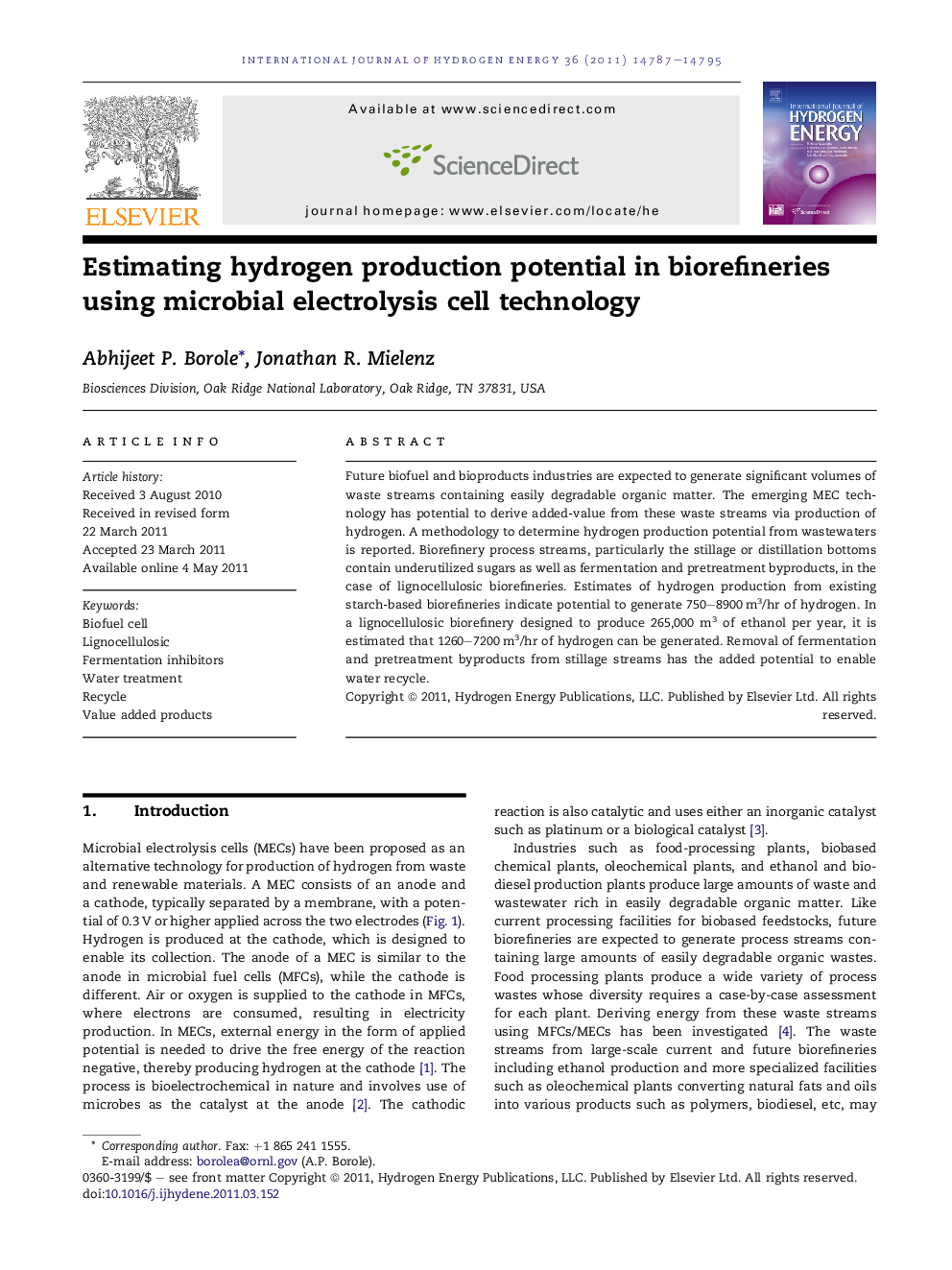| Article ID | Journal | Published Year | Pages | File Type |
|---|---|---|---|---|
| 1275686 | International Journal of Hydrogen Energy | 2011 | 9 Pages |
Future biofuel and bioproducts industries are expected to generate significant volumes of waste streams containing easily degradable organic matter. The emerging MEC technology has potential to derive added-value from these waste streams via production of hydrogen. A methodology to determine hydrogen production potential from wastewaters is reported. Biorefinery process streams, particularly the stillage or distillation bottoms contain underutilized sugars as well as fermentation and pretreatment byproducts, in the case of lignocellulosic biorefineries. Estimates of hydrogen production from existing starch-based biorefineries indicate potential to generate 750–8900 m3/hr of hydrogen. In a lignocellulosic biorefinery designed to produce 265,000 m3 of ethanol per year, it is estimated that 1260–7200 m3/hr of hydrogen can be generated. Removal of fermentation and pretreatment byproducts from stillage streams has the added potential to enable water recycle.
► Generating value added stream from biorefinery process waste streams via MEC technology. ► Potential to produce 750-8900 m3/h of H2 in starch based biorefineries. ► Full-scale lignocellulosic biorefineries can yield up to 7200 m3/h of H2. ► Potential for water recycle via removal of inhibitory process byproducts.
